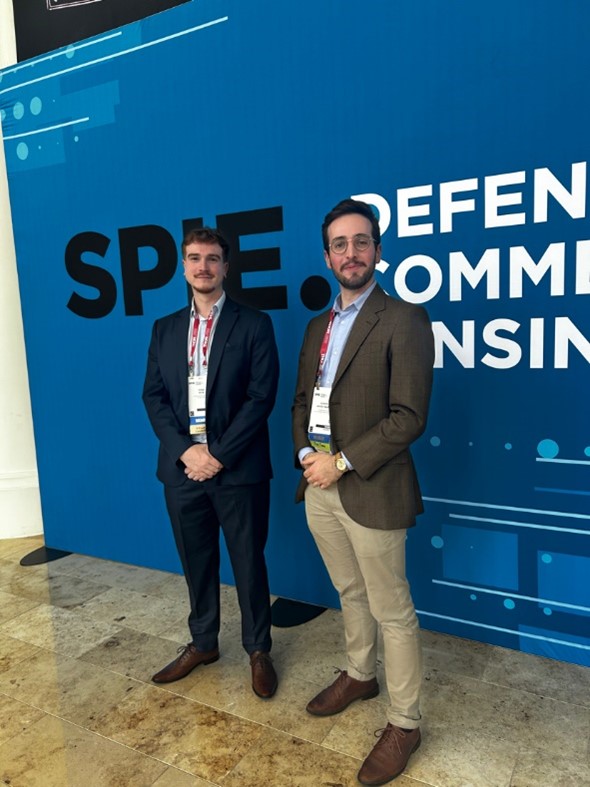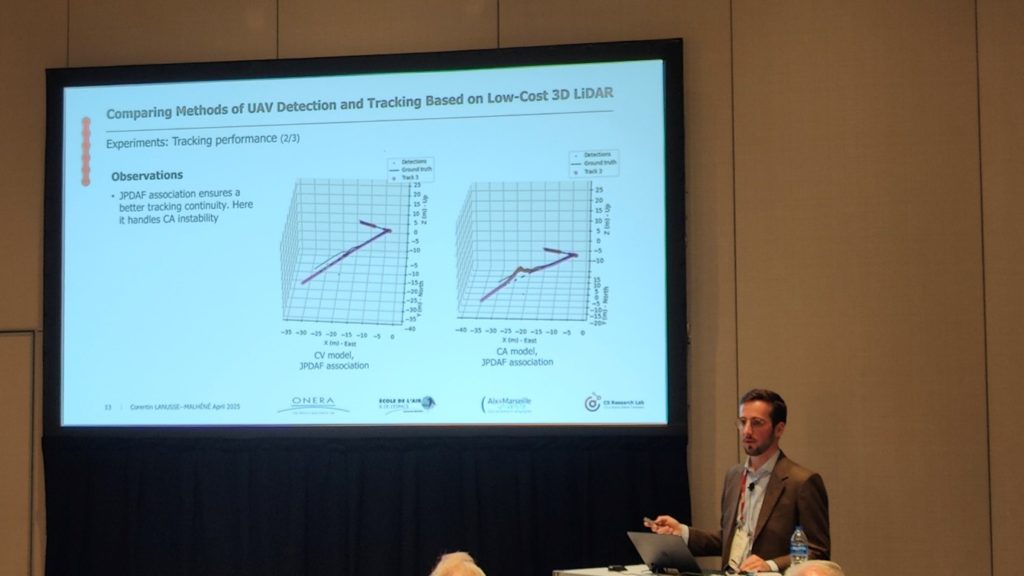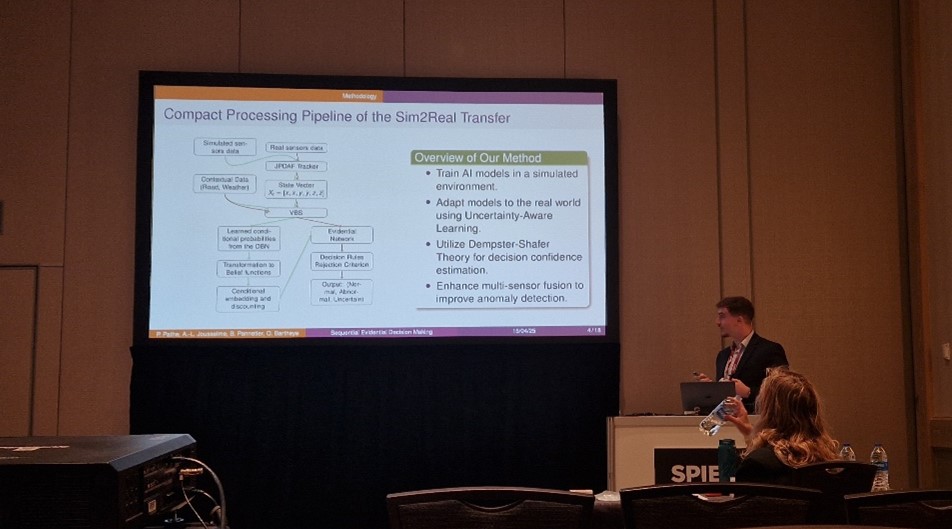The CS Research Lab, CS’s industrial laboratory, attended SPIE Defense + Commercial Sensing in Orlando from April 15 to 17, 2025, to present two major research contributions

A MethPaper 13463-6 – Comparing methods of UAV detection and tracking based on low-cost 3D LiDARodology oriented on accuracy and usability
Written by Corentin Lanusse–Malhéné (CS Research Lab, CREA, ONERA), Benjamin Pannetier (CS Research Lab), Nicolas Rivière (ONERA), Olivier Bartheye (CREA), Anita Schilling (ONERA DOTA) et Lionel Gardenal (CS Research Lab) and presented by Corentin Lanusse-Malhéné (CS Research Lab, CREA, ONERA)
Two principal families of UAV tracking methods in urban canyons are benchmarked:
- Tracking-by-detection, relying on prior object classification.
- Tracking-before-detection, which performs tracking independently of identification.
Using real flight tests from a low-cost 3D LiDAR network and GPS ground truth. The robustness of these methods was assessed according to the altitudes, distances, and speeds of the drones. The results highlight the advantage—particularly in defense contexts—of favoring tracking-before-detection approaches to address protean , hard-to-classify threats.

Paper 13479-13 – Sequential evidential decision making for real-time drone anomaly detection: a Sim2Real VBS approach
Written by Pierre Pathé (CS Research Lab, CREA), Anne Laure Jousselme (CS Research Lab), Benjamin Pannetier (CS Research Lab) et Olivier Bartheye (CREA) and presented by Pierre Pathé (CS Research Lab, CREA)
The paper presents a sequential decision-making framework based on an evidential Valuation-Based System, incorporating an EVSI (Evidential Expected Value of Sample Information) stopping rule, to automatically determine the optimal time to suspend additional data collection. At each step, the algorithm weighs the expected improvement in decision accuracy against additional sensing costs. Against simple threshold rules and static Value-of-Information methods, the approach delivers marked gains in precision and recall, explicitly managing epistemic uncertainty and conflicting evidence.

Impact and outlook
These papers demonstrate our strength in combining applied research with industrial innovation to:
- Advance multisensor data fusion and adaptive surveillance in urban environments,
- Define objective metrics to measure and optimize tracking algorithm performance,
- Lay the groundwork for reliable, scalable, real-world anti-drone solutions.
Acknowledgments
We extend our sincere thanks to SPIE, the organizers, and the global community of experts. Their insights and collaboration are vital to creating the next generation of defense solutions.
More information on CS Research Lab : https://www.cs-soprasteria.com/fr/technologies-innovation/cs-research-lab/
Pierre Pathé


